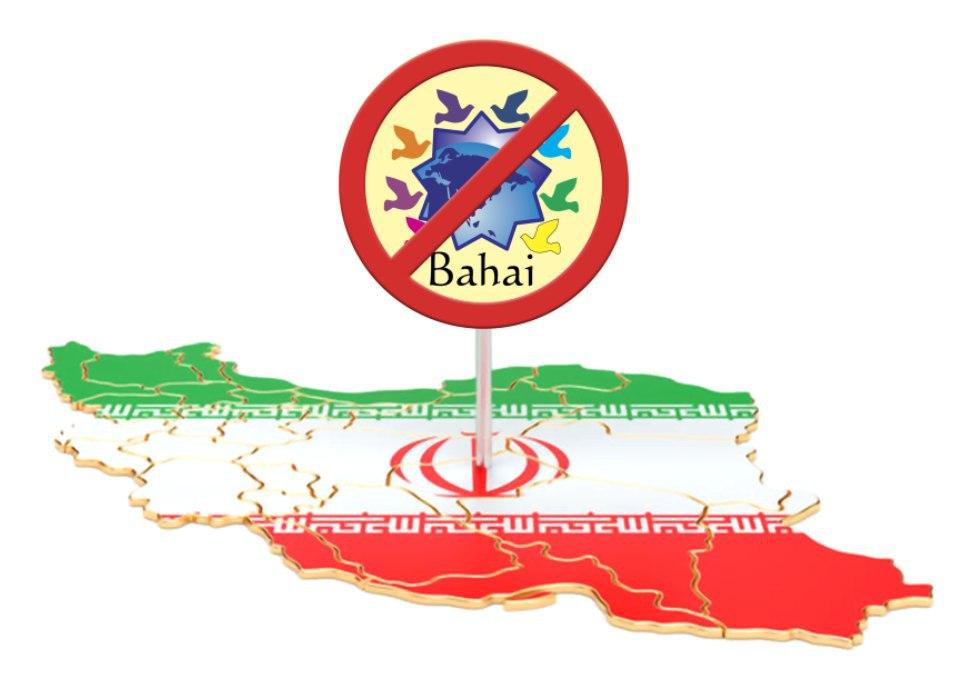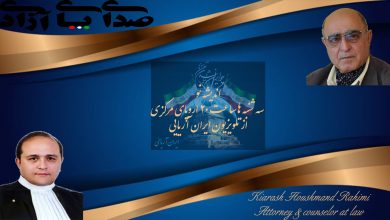
Nine Baha’is living in Birjand sentenced to a total of more than 51 years in prison
Human Rights in Iran – Today, Thursday, April 23, 2020, Branch 2 of the Birjand Revolutionary Court, presided over by Judge Hojjat Nabavi, issued a sentence against Roya Maleki, Ataullah Maleki, Saeed Maleki, Arezoo Mohammadi, Rahmatollah Dimi, Farzaneh Dimi, Nasrin Ghadiri, Banafsheh Mokhtari, and Atieh Salehi, nine Baha’is living in Birjand to a total of 51 years and eight months in prison. The trial on the case of these Baha’i citizens was held on April 20 of the current year. These Baha’i citizens were detained during a raid on the homes of Baha’i citizens in Birjand in October 2017 and were released on bail pending interrogation.
According to Human Rights in Iran, on Tuesday, April 21, 2020, Roya Maleki, Ataullah Maleki, Saeed Maleki, Arezoo Mohammadi, Rahmatollah Dimi, Farzaneh Dimi, Nasrin Ghadiri, Banafshe Mokhtari, and Atieh Salehi, nine Baha’i citizens living in Birjand were tried by Branch 2 of the Revolutionary Court of Birjand, presided over by Judge Hojjat Nabavi, on charges of “membership in an illegal organization and disrupting the security of the deviant Baha’i sect and propaganda for the benefit of the Baha’i organization as an anti-Islamic group and organization,” in absentia. They were sentenced to 51 years and 8 months of imprisonment. The trial of the case of these Baha’i citizens was held on April 21, 2020, and the date of delivery of the verdict was written as April 23, 2020.
In an interview with Human Rights Reporter in Iran, an informed source said: “According to the lawsuit filed on April 23, two days after the hearing on Sana’s website, (the information and communication system Judiciary) delivered to these citizens: Roya Maleki, Saeed Maleki, Arezoo Mohammadi, Farzaneh Dimi, Ataullah Maleki, Nasrin Ghadiri, Banafshe Mokhtari, and Atieh Salehi, on charges of “membership in an illegal organization and disrupting the security of the misguided sect. Baha’ism and propaganda in favor of the Baha’i organization as a group and organization opposed to the holy order of the Islamic Republic” were each sentenced to 6 years imprisonment; Also, Rahmatollah Dimi was sentenced to 3 years and 8 months in prison due to his old age.”
The informed source about the trial of the case of these Baha’i citizens said: “All 9 of these people were summoned during two interrogation sessions in March 2020 and after being informed of the charges and completing the case, they were referred to the Branch 2 of Revolutionary Court of Birjand Revolutionary Court. The investigating authority of this case was determined and on April 20, 2020, a hearing was held on the case of Roya Maleki, Ataullah Maleki, Saeed Maleki, Arezoo Mohammadi, Rahmatollah Dimi, Farzaneh Dimi, Nasrin Ghadiri, Banafshe Mokhtari, and Atieh Salehi. On April 21, 2020, each of these individuals received a text message indicating the sentence was issued, and on April 23, a verdict was published on the “Sana” (Judiciary Information and Communication System).”
These nine Baha’i citizens were arrested on October 21, 2017, as celebrating the 200th birthday of Bah’ullah, the Prophet of the Baha’i’s Faith, by Intelligent Service agents of Birjand in South Khorasan Province after searching their homes and confiscating personal belongings and were transferred to the detain Center. Each of these Baha’i citizens was released separately from custody after completing the interrogation process on bail.
It should be noted that on December 19, 2019, Bahman Salehi, Firooz Ahmadi, Khalil Maleki, Sohrab Maleki, Sheida Abedi, Simin Mohammadi, Bijan Ahmadi, Maryam Mokhtari and Saghar Mohammadi, 9 other Baha’i citizens living in Birjand, arrested simultaneously with these Baha’i citizens, by SouthKhorasan Court of Appeals on charges of “membership in an illegal and disruptive Baha’i organization, as well as propaganda against the regime by Baha’i propaganda” found guilty and were sentenced to a total of 28 years and six months of imprisonment.
Article 5 of the Criminal Procedure Code indicates that the accused shall be informed of the charges and provided access to a lawyer as soon as possible. Other defensive rights are enshrined in law, but extrajudicial actions by security agencies violate the laws they drafted and claim to be enforced.
According to the directive of the Supreme Council of the Cultural Revolution approved on February 25, 1991, Baha’i citizens are deprived of any citizenship rights and the Government of the Islamic Republic of Iran does all kinds of flagrant violations of human rights along with coercion acts.
The suppression of the Baha’is of Iran violates international human rights instruments, including UDHR article2, as well as articles 18 and 19of this valid international document, adding article 18 of ICCPR. Both of these documents have emphasized the importance of performing religious rites, advertising, and instruction, both collectively and privately. Also, having the right to a fair trial is one of the inalienable rights enshrined in article10 of UDHR.
Note 48 under article 48 of the Islamic Criminal Procedure Code is one of the most controversial legal provisions in the Iranian judicial system, which has been criticized by many lawyers and commentators since its implementation including Amnesty International which has issued a statement reacting to its approval by the Parliament’s Judiciary and Legal Commission on May 16, 2019.
This human rights organization also stressed that in case of the resolution of the Parliamentary Judiciary and Legal Commission being finally approved, it will seriously damage the Iranian judicial system, which is currently full of shortcomings, which it did.





